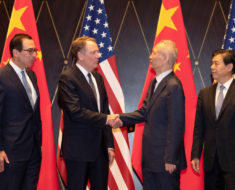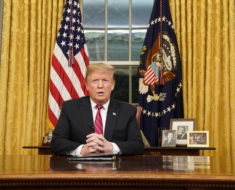The Defense Advanced Research Projects Agency, more popularly shortened to DARPA, might have an inside track on the future of space exploration. We are currently living in the unbridled expansion of interest ins pace. With commercial enterprises being launched around the world to pursue privatized space travel, more people than ever are really looking at the stars and wondering ‘What if?’ According to Fred Kennedy, the director of the Tactical Technology Office at DARPA, went on the record to expound on his belief in the future of space exploration and what it could all mean for the world.
Kennedy went on the record to make his opinions clear on the future of the space-race and, needless to say, we doubt he is the only one with these thoughts. Kennedy said, “In the national security space sector, we’re in dire need of new thinking and innovation. Kennedy went on to expound by pointing out that more people than ever are interested in the space-race and that it could pay huge dividends to have success come from the private sector. Kennedy spoke publicly at the Commercial Spaceflight Federation breakfast roughly ten days ago. He spent much of his time looking for a ‘shakeup’ to come and change the way that the Pentagon, as well as the United States government, is approaching the industry. Kennedy went on to say, “Our savior is going to be the commercial sector.”
If innovation is something that you want on the menu, then you had better pay close attention to what DARPA is doing of their own accord. Kennedy expounded on the RSGS, or Robotic Servicing of Geosynchronous satellites, as one of their most prominent and ambitious projects. The RSGS project is set to launch in 2021 and if successful it would manage to put DARPA on the map as a game-changer for the entire industry. Kennedy said of the RSGS, “Geosynchronous orbit is a natural place to go. They all need to be refueled, repaired, moved or retired.” Kennedy went on to say that he hopes the RSGS would act as a shakeup which would change how the space sector interacts and operates with the government in the form of business. Ultimately, Kennedy admitted, culture would be the “biggest problem” and that the world needs to focus more on prioritizing the work done in the space industry. While Kennedy was met with some resistance during his speech, it is clear that many people are on his side.
Dil Bole Oberoi





